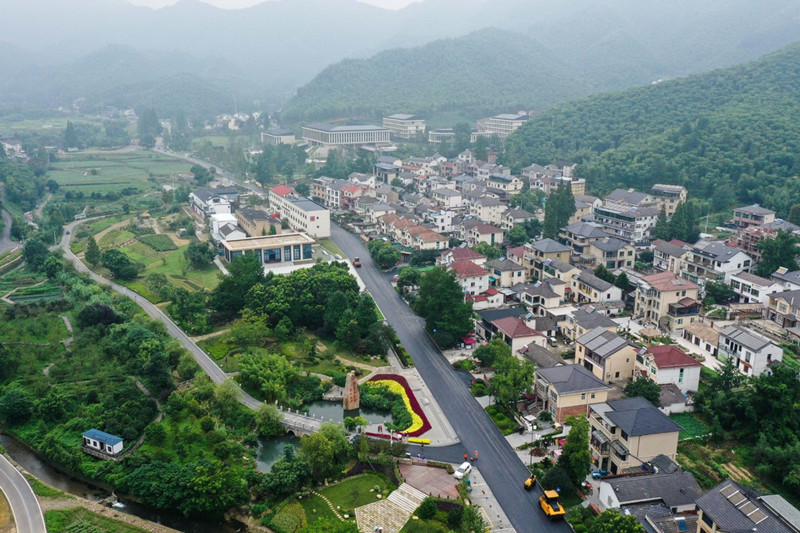Xi concept on ecology helps guide world

An aerial view of Yucun village in Zhejiang province's Anji county, July 28, 2020. [Photo/Xinhua]
'Lucid waters' idea becomes role model for balancing economy, environment
Fifteen years ago, when Xi Jinping was secretary of the Communist Party of China Zhejiang Provincial Committee, he proposed the concept of "lucid waters and lush mountains are invaluable assets" during a visit to Yucun village in the province's Anji county.
The idea reflects Xi's governance philosophy in pursuing the synergy between economic development and environmental protection. It was developed after Xi became the general secretary of the CPC Central Committee in November 2012, and has been translated into the practice of the building of an ecological civilization as part of the country's development strategy.
Dechen Tsering, United Nations Environment Program regional director and representative for Asia and the Pacific, said the balance between economic development and protection of ecosystems is not easy to achieve, but the aspiration of the "ecological civilization" that Xi advocates is to accomplish exactly this.
"China has done a lot of very important work on environmental issues to realize this ambition, and that's positive leadership the world can take inspiration from," Tsering said. "Especially at a time when we are dealing with environmental issues on all fronts-from climate change to pollution to biodiversity loss-we need countries like China to ... lead the international community in striking strong agreements that protect nature."
As a significant part of Xi Jinping Thought on Socialism with Chinese Characteristics for a New Era, Xi's vision on building an ecological civilization calls for putting conservation and protection first to ensure the harmony between human and nature, and sticking to innovative, coordinated, green, open and shared development. It also regards a sound environment as the most inclusive benefit to people's well-being.



